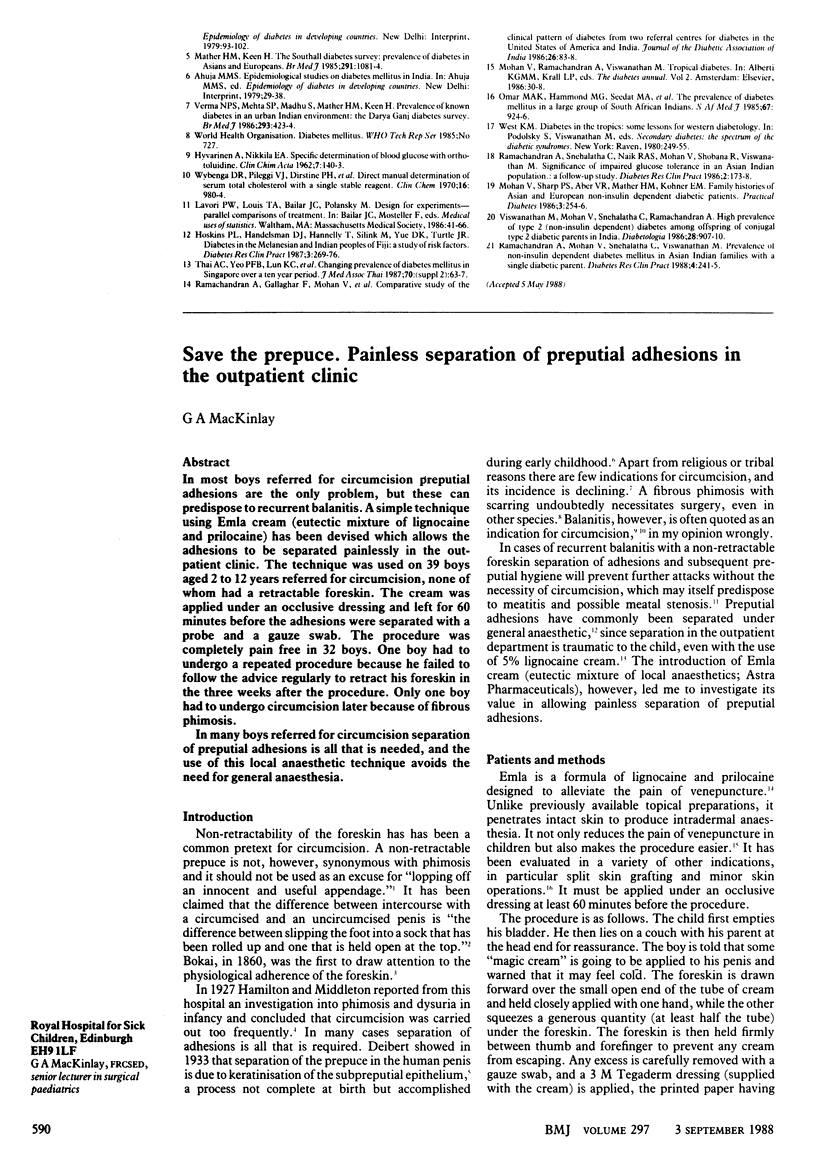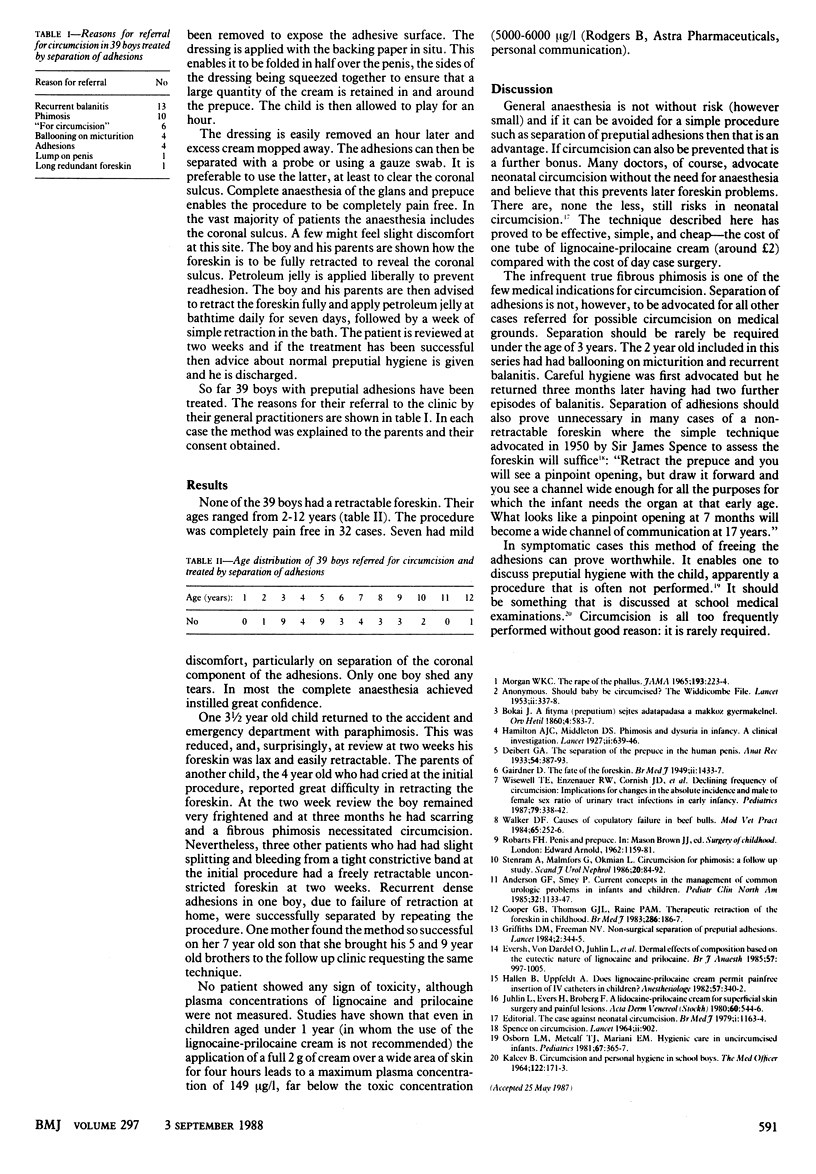Abstract
In most boys referred for circumcision preputial adhesions are the only problem, but these can predispose to recurrent balanitis. A simple technique using Emla cream (eutectic mixture of lignocaine and prilocaine) has been devised which allows the adhesions to be separated painlessly in the outpatient clinic. The technique was used on 39 boys aged 2 to 12 years referred for circumcision, none of whom had a retractable foreskin. The cream was applied under an occlusive dressing and left for 60 minutes before the adhesions were separated with a probe and a gauze swab. The procedure was completely pain free in 32 boys. One boy had to undergo a repeated procedure because he failed to follow the advice regularly to retract his foreskin in the three weeks after the procedure. Only one boy had to undergo circumcision later because of fibrous phimosis. In many boys referred for circumcision separation of preputial adhesions is all that is needed, and the use of this local anaesthetic technique avoids the need for general anaesthesia.
Full text
PDF

Selected References
These references are in PubMed. This may not be the complete list of references from this article.
- Anderson G. F., Smey P. Current concepts in the management of common urologic problems in infants and children. Pediatr Clin North Am. 1985 Oct;32(5):1133–1149. doi: 10.1016/s0031-3955(16)34898-2. [DOI] [PubMed] [Google Scholar]
- Cooper G. G., Thomson G. J., Raine P. A. Therapeutic retraction of the foreskin in childhood. Br Med J (Clin Res Ed) 1983 Jan 15;286(6360):186–187. doi: 10.1136/bmj.286.6360.186. [DOI] [PMC free article] [PubMed] [Google Scholar]
- Evers H., von Dardel O., Juhlin L., Ohlsén L., Vinnars E. Dermal effects of compositions based on the eutectic mixture of lignocaine and prilocaine (EMLA). Studies in volunteers. Br J Anaesth. 1985 Oct;57(10):997–1005. doi: 10.1093/bja/57.10.997. [DOI] [PubMed] [Google Scholar]
- GAIRDNER D. The fate of the foreskin, a study of circumcision. Br Med J. 1949 Dec 24;2(4642):1433-7, illust. doi: 10.1136/bmj.2.4642.1433. [DOI] [PMC free article] [PubMed] [Google Scholar]
- Griffiths D. M., Freeman N. V. Non-surgical separation of preputial adhesions. Lancet. 1984 Aug 11;2(8398):344–344. doi: 10.1016/s0140-6736(84)92706-5. [DOI] [PubMed] [Google Scholar]
- Hallén B., Uppfeldt A. Does lidocaine-prilocaine cream permit painfree insertion of IV catheters in children? Anesthesiology. 1982 Oct;57(4):340–342. doi: 10.1097/00000542-198210000-00024. [DOI] [PubMed] [Google Scholar]
- Juhlin L., Evers H., Broberg F. A lidocaine-prilocaine cream for superficial skin surgery and painful lesions. Acta Derm Venereol. 1980;60(6):544–546. doi: 10.2340/0001555560544546. [DOI] [PubMed] [Google Scholar]
- MORGAN W. K. THE RAPE OF THE PHALLUS. JAMA. 1965 Jul 19;193:223–224. doi: 10.1001/jama.1965.03090030045013. [DOI] [PubMed] [Google Scholar]
- Osborn L. M., Metcalf T. J., Mariani E. M. Hygienic care in uncircumcised infants. Pediatrics. 1981 Mar;67(3):365–367. [PubMed] [Google Scholar]
- Walker D. F. Causes of copulatory failure in beef bulls. Mod Vet Pract. 1984 Apr;65(4):252–256. [PubMed] [Google Scholar]
- Wiswell T. E., Enzenauer R. W., Holton M. E., Cornish J. D., Hankins C. T. Declining frequency of circumcision: implications for changes in the absolute incidence and male to female sex ratio of urinary tract infections in early infancy. Pediatrics. 1987 Mar;79(3):338–342. [PubMed] [Google Scholar]



